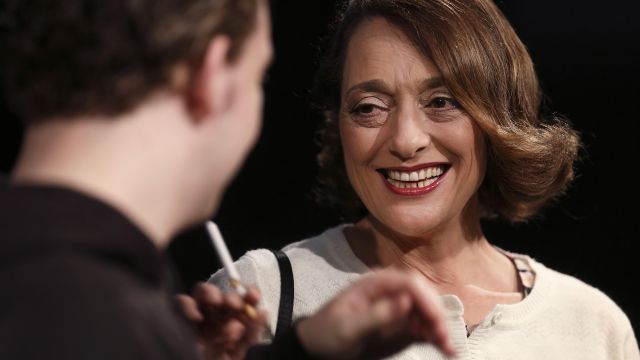The Graduate
Multi-award winning British dramatist and director Terry Johnson adapted and presented The Graduate to the stage in 2000. Based on the 1967 American romantic comedy-drama film rdirected by Mike Nicholls and written by Buck Henry and Calder Willingha, based on the 1963 novel of the same name by Charles Webb, the film has legendary status and remains in America’s top 20 significant films. The play, too, has had success on both the West End stage and on Broadway.
Whilst the film and play share the same story, there are differences, as the play introduces new material and each character is developed to accommodate this. This version also effectively uses songs by Simon and Garfunkel not used in the film, such as ‘Bridge Over Troubled Water’ as well as music from other popular musicians from the era including The Byrds and The Beach Boys.
Set in California in the early '60s, we meet 21-year-old Benjamin Braddock played by Nathan Quadrio, who has just finished college. He is a pampered, indulged young man who appears rudderless, but equipped for the journey with a new wetsuit. Back at his parents' house, he's trying to avoid the one question everyone keeps asking: What does he want to do with his life? An unexpected diversion crops up when he is seduced by Mrs. Robinson, courageously portrayed by Niki Martin, a bored housewife and friend of his parents. But what begins as a fun tryst turns complicated when Benjamin falls for the one woman Mrs. Robinson has demanded he stay away from, her daughter, Elaine.
 The role of Elaine is undertaken by Hannah Tulip, who captures the innocence and vulnerability of the character effectively.
The role of Elaine is undertaken by Hannah Tulip, who captures the innocence and vulnerability of the character effectively.
The most engaging performance is delivered by Nathan Quadrio as Benjamin. His voice work is easy to listen to, with his character and accent both consistent and believable.
It is a very difficult task to follow in the footsteps of Anne Bancroft, whose Mrs Robinson character created the first modern ‘Cougar’. In the Matt Byrne Media production Niki Martin starts with the character being a quietly seductive party guest. Then with great courage, together with sensitive lighting and placement, Martin offers a completely naked Mrs Robinson to Benjamin, setting up the theme of the play from early on. Martin’s later work involves less seduction and more angry, contorted demeanour, rather than a smooth, in control seductress.
Byrne as Director, as is often the case with his shows, appears as one of the characters. He clearly relishes the role of Mr Robinson, particularly as the demented axe man trying to rescue his daughter. He appears to have given his actors licence to develop both character and accent. Accents vary from the deep south, to California and the Bronx and this becomes particularly distracting as several characters, including Benjamin’s parents, shout for much of their dialogue and this makes it unintelligible for the audience.
 The other supporting roles are really ‘window dressing’ and make little impact on the story. Byrne is obviously giving opportunities and experience to newer actors in these roles.
The other supporting roles are really ‘window dressing’ and make little impact on the story. Byrne is obviously giving opportunities and experience to newer actors in these roles.
The play is written in an episodic style using 11 scenes. This presents a challenge to the actors to sustain pace, mood and consistency. Noteworthy is the work of the ‘well oiled’ crew (who get to appear as wedding guests) in smoothly moving furniture and disguising it within the auditorium. Scene changes are often lengthy because of this.
Costumes, props and set dressing gives ‘a nod’ to the era, but small issues such as modern tattoos, on show, detract somewhat from the look and feel of the play.
The message of the play ushers in the social changes brought about in the 1960’s. It also highlights the chasm that this created between generations. This is poignant with subtleties like Benjamin only ever calling his lover “Mrs Robinson” even as they cavort in bed. A most telling line that sums up the message is, “There is a great future in plastics,” heralding the plastic nature of the 60’s and 70’s ahead of them.
Byrne is known and well regarded for introducing new theatre to Adelaide. Once again, he has led the way with The Graduate.
Jude Hines
Subscribe to our E-Newsletter, buy our latest print edition or find a Performing Arts book at Book Nook.

